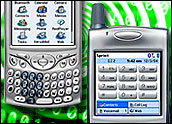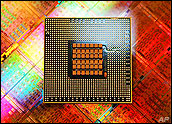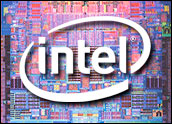
A new software update for Sony’s PlayStation 3 consoles includes Bluetooth support, enhanced downloading and the ability to help a Stanford University distributed-computing program hoping to cure protein-related diseases.
Dubbed “Firmware 1.60,” the upgrade can be installed directly to Internet-connected PS3 consoles, downloaded into a home computer and transfered to the console or installed when a game disc including the software is played, said Sony.
The connectivity to Stanford University’s Folding@home program will begin Thursday. The project will harness the processing power of thousands of home computers and PS3s across the globe creating, in essence, a giant supercomputer to perform scientific calculations.
Solving a Mystery
The name refers to the biological process of protein folding. “Proteins are biology’s workhorses — its ‘nanomachines,’ explains the Folding@home Web site. “Before proteins can carry out these important functions, they assemble themselves, or “fold.” The process of protein folding, while critical and fundamental to virtually all of biology, in many ways remains a mystery.”
Misfolding can lead to many serious illnesses, including Alzheimer’s, mad cow disease (BSE), CJD, ALS, Huntington’s disease, Parkinson’s disease, and many cancers and cancer-related syndromes, according to Stanford. Folding@Home’s use of distributed computing allows the program to “simulate problems thousands to millions of times more challenging than previously achieved,” it noted.
The PS3’s new Cell Broadband Engine is ideally suited for the Folding@home project due to its power, Sony said.
“Using the power of the Cell Broadband Engine, the PS3 system can perform computer simulations for the Folding@home program 20-30 times faster than the average home PC,” the company added. The calculations are done while the console’s processor is not being used for gaming or other tasks.
The decision to link PS3s came out of “mutual interest” between Sony and the university, the professor heading the Folding@home project, Vijay Pande, said. “We knew the Cell could do great things and we want to increase the power of FAH,” Pande told TechNewsWorld. “Sony wanted to help FAH and to demonstrate the power of the Cell as well.”
Aligning the program with 10,000 PS3 users has the equivalent of using 200,000 normal computer processors, according to Pande. Currently, without the PS3s online, FAH has about 200,000 PCs crunching numbers, so the PlayStation deal will effectively double the program’s capabilities, he added.
New Features
In addition to affording gamers the ability help Folding@home’s worthwhile cause, the latest PS3 firmware will make it easier for them to download material from Sony’s PlayStation store, Sony claimed. Up to six downloads can be put into a queue and their progress can be tracked via a new download-management menu.
Users will also be able to download files in the background while using some PS3 system features including video and photo display, playing music and Web browsing, according to the company. The new software will support Bluetooth-enabled mice and keyboards, and PS3 owners will also have the option of using a full QWERTY on-screen keyboard.
A big selling-point for PS3 is its ability to also serve as a player for Blu-ray high-definition movies. The new firmware will allow the consoles to also playback rewritable (BD-RE) discs, Sony stated.
Those who own the 20 GB PS3 as well as a Sony PSP portable unit will now be able to use the PSP to remotely access photos, video and music on the PS3’s hard drive. This will be done using an external WiFi router or wireless access point, Sony said.
Additionally, the new firmware includes an enhancement to the PS3’s Web browser that allows users to zoom-in on selected areas of Web pages. Another tool will help reduce flicker when the PS3 is using interlaced 480i or 1080i video output.
Continual Improvement
Though sales of PS3s have paled in comparison to other new gaming consoles, particularly the Nintendo Wii, the PS3’s power and features are expected to make it as popular in the long-run as the still-selling PlayStation 2 console.
Sony’s effort to continually improve the new product has impressed Richard Doherty, research director at The Envisioneering Group.
“This shows that in the past 120 days, Sony has enhanced the PS3 more than once a month,” he told TechNewsWorld. “This is unprecedented in the industry and makes the console more valuable and versatile with each upgrade.”




















































